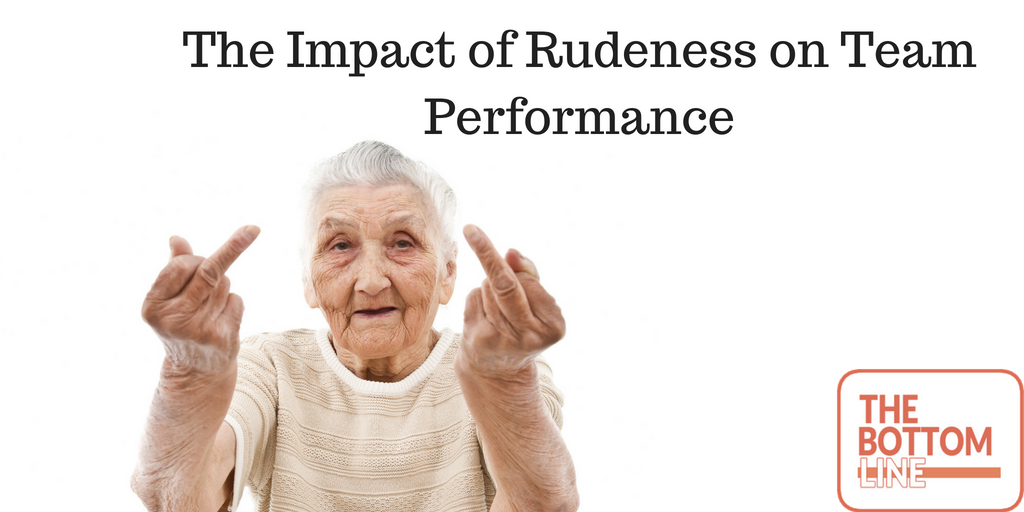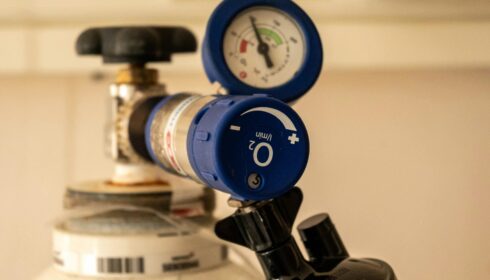Riskin

The Impact of Rudeness on Medical Team Performance: A Randomized Trial
Riskin. Pediatrics 2015:136(3), doi: 10.1542/peds.2015-1385
Clinical Question
- Does a neonatal intensive care team who is affected by rudeness compared to no rudeness impair team members’ diagnostic and procedural performance?
Background
- Iatrogenic events occur in ~4% of hospital admissions with half of these being preventable and 14% resulting in death. These rates are higher in patients that are critically ill
- Studies have suggested that the risk of iatrogenic events is increased by practitioner stressors. One such stressor may be rudeness
Design
- Randomised controlled trial
- Stratified by unit and hospital
- Randomisation performed by research assistant
- ‘Randomly assigned to teams at the same time and shift of the day based on availability in the NICU’
- Randomly assigned to the control or incivility group
- Experimenter and the participants were blinded to the group allocation
- Participants performed a 1-hour simulation in their own NICU followed by a workshop on team reflexivity
- Simulation observed on webcam by ‘international world expert’
- Managed pre-term infant with necrotizing enterocolitis who was in respiratory failure and shock, who then went on to develop a cardiac tamponade secondary to a central line
- Assessor of performance blinded to group assignment (2 senior physicians and 1 senior nurse read written documentation and watched recorded simulation)
- Performance rated on 5 point scale (1 = failed, 2 = poor, 3 = moderate, 4 = good, 5 = excellent) with descriptions and examples of indicative behaviour for each score. Diagnostic and procedural performance were assessed
- Sample size calculation of 10-11 teams per condition – the power of the study was not stated
Setting
- 4 Israeli Neonatal Intensive Care Units
Population
- Inclusion:
- Neonatal team
- Comprising of 1 physician and 2 nurses from the same unit
- Mean occupational tenure of 10.6 +-8.6 years
- Exclusion criteria: none stated
- Neonatal team
- 24 teams of 3 randomised
Comparing intervention and control groups no significant difference in age, sex, hierarchal status, level of expertise, tenure of participants
Intervention
- Subjected to rude behaviour
- Participants shown pre-recorded videos that they were told were live
- Prior to starting simulation
- Expert stated that he had “already observed a number of groups from other hospitals and he was not impressed by the quality of medicine in Israel”
- Half way through simulation (at 10 minutes)
- Expert stated “medical staff like those observed in Israel wouldn’t last a week in his unit” and that he “hoped they would learn and improve from the workshop but he hoped he would not get sick in Israel”
- Prior to starting simulation
- Participants rated the behaviour as rude with a mean score of 3.24/4
- Participants shown pre-recorded videos that they were told were live
Control
- Not subjected to rude behaviour
- Participants were shown similar videos as intervention groups but without the rude comments
- Participants rated the behaviour as rude with a mean score of 1.21/4
Outcome
- Diagnostic performance – significantly lower in team exposed to rudeness
- 2.65 vs. 3.18, p=0.005
- Procedural performance – significantly lower in team exposed to rudeness
- 2.77 vs. 3.26, p=0.008
- Multivariate analysis demonstrated that~12% of the variance in medical performance was explained by rudeness
- Standardised coefficients for mediation model
- Rudeness was significantly associated with reduced
- Information sharing
- -0.51, 95% C.I. -0.87 to -0.15, p<0.01
- Help-seeking
- -0.38, 95% C.I. -0.7 to -0.08, p<0.05
- Information sharing
- Information sharing had a significant positive relationship with diagnostic performance (0.47, p<0.01) but not with procedural performance
- Help-seeking had a significant positive relationship with procedural performance (0.41, p<.01), but not diagnostic performance
- Rudeness was significantly associated with reduced
Authors’ Conclusions
- Rudeness harms the diagnostic and procedural performance of practitioners
Strengths
- Randomised controlled trial
- Blinding of experimenter, participants and assessors
- Use of videos allowed standardised process
- Moderate-to-high inter-rater reliability of judges
- Good baseline balance between groups of study participants (e.g. expertise and experience)
- If anything, the ‘rudeness’ was relatively mild and was not personally directed (comments were generic to Israel) yet still appeared to have a detrimental effect
- The study is underpinned by a persuasiveness conceptual framework explaining how rudeness affects performance
- Team member assignments were random, resembling the “flash teams” of people that may not have previously worked together that are common in hospital emergency responses
Weaknesses
- Randomisation process not clearly stated i.e was a computer random number generator used, or did the research assistant just pick?
- Sample size calculation, demonstrating power of study, was not performed
- Clinical expertise and training of judges in assessment was not specified
- It was not stated if the assessment process has been validated
- Although the findings of decreased performance were clearly statistically significant, the potential clinical significance of the deterioration in performance is uncertain
- Effects seen in this simulated setting may differ from what would occur ‘in real life’
- Study performed in a single country – staff in Israel may respond differently to rude behavior compared with staff in England
The Bottom Line
- This randomised controlled trial demonstrated that rudeness was associated with significantly reduced diagnostic and procedural performance
- Rudeness was significantly associated with
- Reduced information sharing which in turn was associated with reduced diagnostic performance
- Reduced help-seeking behaviour, which in turn was associated with reduced procedural performance
- There are limitations in the methodology of this paper, however, this is the best available evidence. We should therefore consider rudeness to be a patient safety issue and aim to minimise this behaviour
External Links
- [article] The impact of rudeness on medical team performance
- [further reading] St. Emlyns Journal Club
- [further listening] EmCrit – Rudeness: The Brindley Sessions
Metadata
Summary author: @davidslessor
Summary date: 25.07.18.
Peer-review editor: @precordialthump (Chris Nickson)



